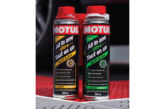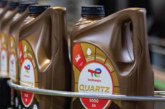
Research shows that motorists are feeling the pinch of the cost-of-living crisis, according to independent lubricants trade body, the Verification of Lubricant Specifications (VLS). It claims up to 40% of drivers think they can’t afford their next MOT, and the numbers for more expensive servicing are likely to be even higher. VLS Chairman, Mike Bewsey, is asking you to advise your walk-in customers, members of the public, not to put off essential oil changes and top-ups, despite pressure on household spending:
“Motor factors that sell directly to the public can play an essential role in helping customers understand just how vital car maintenance is, including oil servicing. Postponing or skipping oil changes or ignoring the oil warning light could starve the engine of vital lubricants, risking increased wear and, at worst, lead to a catastrophic event, like an engine seizure and a much more expensive repair later on. OEMs set oil change schedules for a reason. They know their engines, how they run on certain fuels and in specific regions, and how the engine oil, as well as other consumables, perform over time and as mileage increases. Every driver should follow the recommendations in their vehicle handbook when it comes to servicing and take action as soon as an oil warning light comes on.

“Drivers might think that because they haven’t done many miles this year, if they’ve been working from home more or cutting back on mileage due to high fuel prices, the oil change and filter replacement are not required. But sticking to the recommended service interval is crucial to maintain and protect the vehicle, which is likely worth a lot more than the oil change cost. Frequent short trips can be even more detrimental to the oil than higher mileage due to the accumulation of water and fuel, and the formation of sludge during start/stop and cold phases.”
Worries continue
VLS is also concerned about motorists looking to switch to “cheaper oils” or complete oil top up and changes themselves to save money without the necessary skills or information.
Mike added: “Engine oil is an increasingly complex area, yet it’s more important than ever to select the correct lubricant. Modern vehicle engines require sophisticated lubricants based on advanced chemistry. Even the slightest change in the formulation has the potential to cause engine damage in the long term. For example, the cheapest oil could be a full saps oil. If the vehicle requires a low saps oil, using a full saps oil could damage the emission control system, poison the catalyst or block the DPF/GPF, reduce the overall efficiency and result in failure of the particulate filter or catalyst – both expensive to replace.
“When helping the public select the right oil for their vehicle, it’s essential to look beyond the viscosity to ACEA and OEM specifications as well and be careful of generic OEM claims, such as ‘Suitable for’, as these haven’t been tested by the manufacturer. Online vehicle databases are the safest way to find the correct lubricant for each vehicle, using its unique registration.”








